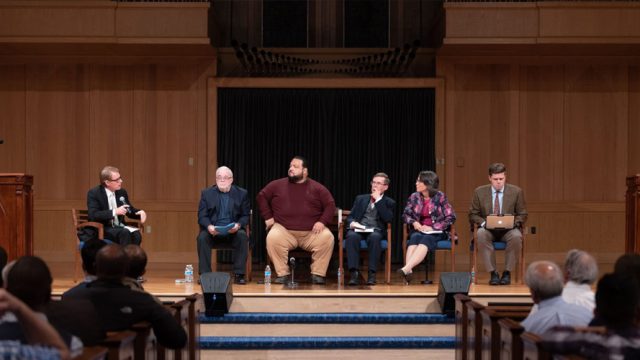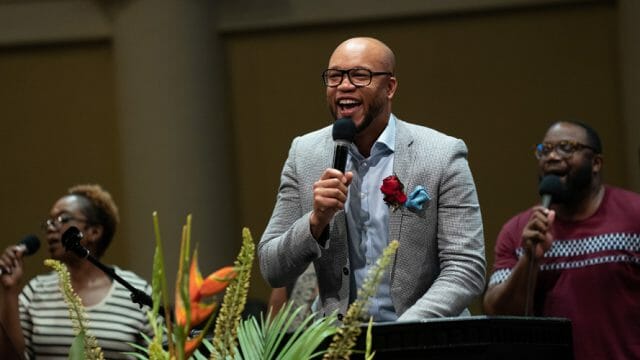It will be the first Adventist institution of its kind in the Asia-Pacific region, they said.

“This is a place where faith and vision converge,” said Adventist University of the Philippines (AUP) president Arceli Rosario in her commitment message during the groundbreaking ceremony of the AUP medical center on January 31. On that day, AUP marked a significant milestone as it officially broke ground for its long-anticipated teaching hospital, the first for the Seventh-day Adventist Church in the region.
In celebration of its 108th founding anniversary under the theme “God Is Limitless,” the event gathered university administrators, faculty, and staff, College of Medicine (COM) students, AUP health services personnel, and invited dignitaries, with approximately 200 attendees present to witness the occasion. The project is the culmination of a long-held vision shared by the previous presidents of the university, leaders said.
Filled With Purpose and Vision
The event started with words of inspiration and encouragement from the administrators, emphasizing the hospital’s significance in strengthening AUP’s vision of integrating faith, education, and healthcare.
AUP health services director Elmer Valenzona referred to the project as “our shared commitment in serving humanity.”
Doris Mendoza, dean of the AUP College of Medicine, reflected on the institution’s long-standing vision, tracing its roots back to the 1950s, its realization in 2015, and its first operational year in 2016. “AUP is the sixth Adventist medical school, and during the pandemic, the seventh was established in Rwanda,” she shared. Emphasizing the significance of the project, she stated that the teaching hospital would be “the first and only Adventist teaching hospital in the country,” fulfilling the Commission on Higher Education’s (CHED) requirements for medical schools.
Edward Carranza, municipal mayor of Silang, said he admired AUP’s progress. “As we break ground, look how far we have come,” he stated, adding that “the government of Silang supports AUP,” as he lauded the institution for its lasting impact on the community.
Teodoro Herbosa, secretary of the Department of Health and former professor at AUP COM, highlighted the need for more health-care facilities in the country, emphasizing the “need to triple our hospital beds.” He recognized the initiative as “a foundation of hope and mission” and assured his support, promising to help fulfill the hospital’s mission. “This is not only constructing a building but a sanctuary of mission,” he said.
Rosario shared some words of commitment. “I do not speak for myself alone. I speak for the board and all the stakeholders of the university,” she said. “And I believe [in this project] with all my heart.” Rosario reassured those involved in the project that support strengthens her resolve while challenges “keep me on my knees. . . . We are not able, but God is able.”
A Beacon of Hope for Medical Education and Health Care
Establishing the teaching hospital marks a pivotal step in addressing the increasing demand for an integrated medical education and health-care system, leaders behind the project said. “This facility will serve as an excellent training ground not just for future doctors but physician missionaries, equipping medical students with essential hands-on clinical experience,” they explained.
Beyond medical education, the teaching hospital is set to serve as a beacon of hope for the surrounding communities, they added. “Committing to high-quality and accessible health-care services, it aims to bridge gaps in medical care, particularly for underserved populations,” they said.
The original version of this story was posted on the Southern Asia-Pacific Division news site.








